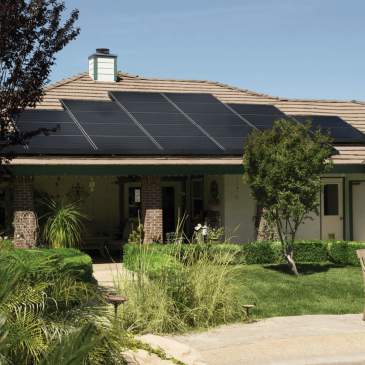Solar Pays Dividends, But Do I Need to Know More?
Investing in a solar power system for your home not only helps increase its market value immediately, but it will also pay dividends over the long term by way of future energy savings. But to get the absolute most out of your system, there are a few things you should know first.
In this guide, we’ll share eight questions that you’ll want to know the answers to before you have solar installed on your home, so the results you get are exactly what you expect.
#1: How Much Sunshine Does Your Roof Receive?
This is arguably the most important thing you need to know because if your home doesn’t get good sunlight, then your system won’t work as efficiently as you’d like. Depending on the amount of shade that hits your home, you may need to have some trees trimmed back or even removed to enjoy the optimum benefits of your solar system. If you’re unsure how much you might be able to save by going solar, Google has a handy calculator that can give you a personalized solar analysis by clicking here.
#2: What Is the Condition of Your Roof?
Once solar panels are installed on your roof, they can be expensive to remove. Therefore, you want your roof to be in as good condition as possible before they’re installed. You don’t want to have panels installed if you are planning on having your roof replaced soon. Get your roof replaced and then have the panels installed. This will ensure your system and your roof are ready for the long haul.
#3: What Type of Roofing Materials Does Your Roof Have?
Although solar panels can be installed on just about every type of roof, installers need to take different approaches depending on the roofing materials that are there. Having this information available before the installers come out to your home will help ensure that they are well-prepared and capable of installing your system without a hitch.
#4: Will Your Roof Need Reinforcing?
Solar panels add additional weight to your roof. To ensure your roof can handle the excess weight, you should have it inspected by a professional. In some cases, additional supports may need to be installed before the panels can be installed.
#5: What are the Federal and State Incentives in Your Area?
If you have your solar power system installed and online by December 31, 2020, you will be eligible for up to a 26% federal tax rebate on the cost of your installation, which can be spread out over several tax years if you wish. However, to take advantage of the tax credit, you need to owe more in taxes than the amount of the rebate.
Bear in mind that after December of 2020, the Federal tax rebate shrinks to 22%, and after that, it will be gradually phased out entirely if Congress doesn’t take action to extend the benefit. For this reason, if you’re thinking about going solar for the tax benefit, it will pay to do it sooner than later.
#6: What Does Your Insurance Cover?
If you live in an area that receives damaging weather, you should find out from your insurance company if your solar system will be covered in the event that a weather-related event damages it. Some insurance policies cover it, but not all do, so it’s important to know what your policy says before you’re faced with such an issue.
#7: How Will You Maintain the Solar Panels?
Solar panels don’t need a lot of maintenance, but they do require the eventual cleaning to maintain optimum performance. Before you have your panels installed, it’s a good idea to have a strategy for how you’re going to maintain them. Your solar installer will be able to give you some valuable advice regarding this topic. In fact, they may even offer a general maintenance contract that you can purchase to keep your maintenance responsibilities to a minimum.
#8: Do You Trust Your Contractor?
Installing a solar power system is not a small job. Therefore, it’s essential that you trust the contractor you hire to do the installation. One way to ensure you’re working with a professional is to validate their credentials. For example, they should be accredited by the North American Board of Certified Energy Practitioners (NABCEP).
Make sure you choose a local contractor with experience and a long history of positive reviews. This will help ensure that you’re choosing a reliable contractor that will also be responsive should you have an issue.

